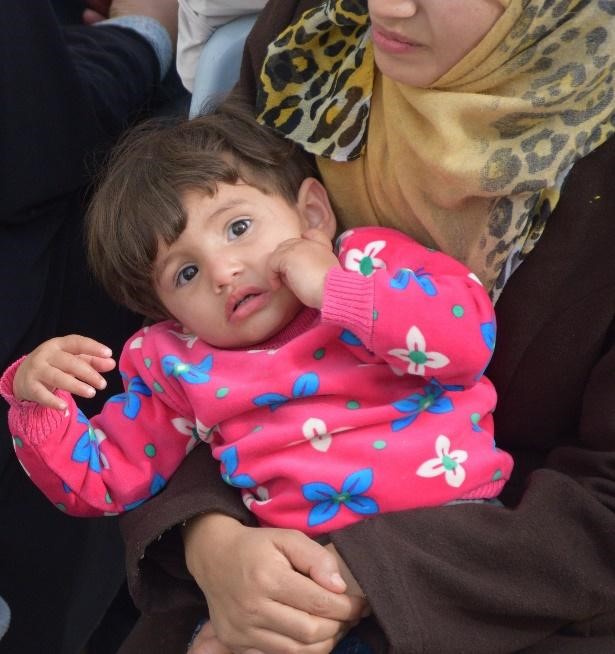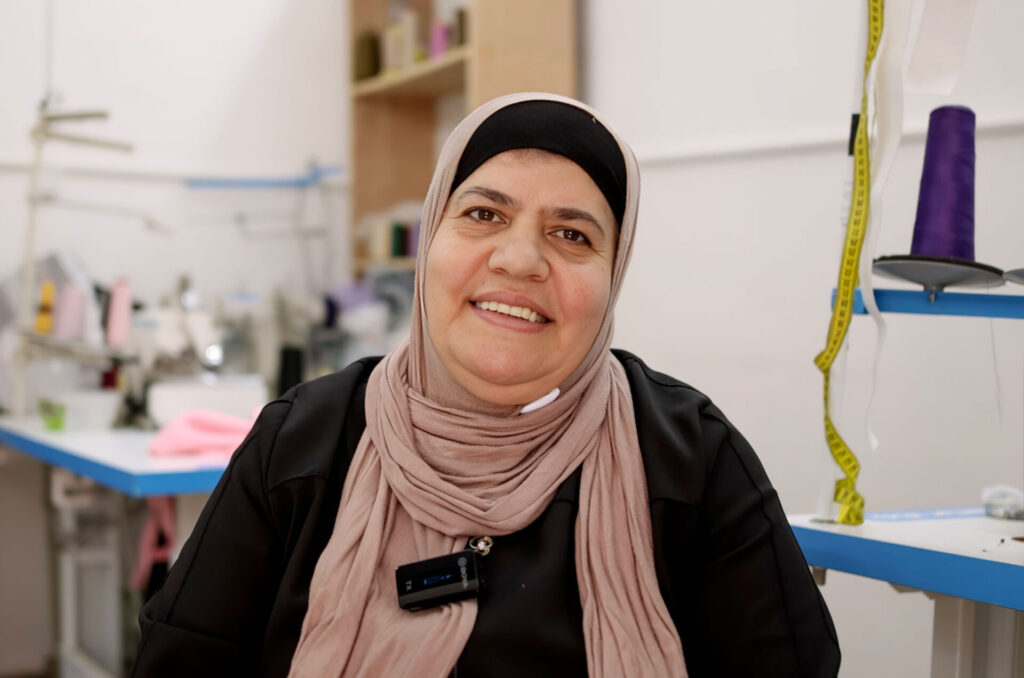HEALTH
Vitamin D Supplements Make a Life-long Difference for Refugee Children
Jan, 2021
Vitamin D deficiency is very common in Jordan, particularly in refugee communities
Ensuring access to health services for Jordanians and refugees alike is a challenge in Jordan due to an overburdened public healthcare system. Barriers to access are particularly steep for refugee groups due to the high cost of care. Local and international organizations can play an important role in supporting refugees and vulnerable Jordanians in accessing quality health services.
Anera’s health and medical donations programs focus on building networks of local healthcare partners to improve the quality of healthcare services, supplying donated medicines and medical supplies that these local partners identify as most-needed, and enhancing public health education in disadvantaged communities. Through strong partnerships, the program addresses the most pressing needs of each community.
Jordan remains host to the second largest refugee population globally, putting an unparalleled strain on the Jordanian healthcare system. Challenges to providing adequate health services include insufficient knowledge and awareness of health conditions in vulnerable communities, inadequate family finances for both treatment and transportation, an absence of safe transportation services to health facilities, and large distances between healthcare facilities.
Anera is working with established healthcare providers serving vulnerable populations to ensure that refugees and Jordanians can access an effective and sustainable system of services, improve the health education in the communities they serve, and implement behavioral change activities.
Through HPIC’s generous donation, Anera is partnering with Jordan Medical Aid for Palestinians (JMAP) to help ensure vulnerable children receive the treatment they need to live healthy lives. JMAP serves as a flagship establishment in providing high-quality medical care and services to vulnerable patients. Through this project, Anera aims to identify the key drivers of vitamin D deficiencies among children living in Palestinian refugee camps and provide supplements to improve overall health conditions.
Vitamin D deficiency and insufficiency are extremely common in Jordan and across the region. Severe deficiency cases are most prevalent in disadvantaged communities where the condition is less likely to be detected early and proper sustainable treatments are less accessible. The main causes of vitamin D deficiency in these settings include inadequate skin exposure to sunlight due to traditional clothing, limited availability of foods with vitamin D, food insecurity and a lack of vitamin supplementation.
Mahmoud is an 18-month-old Palestinian refugee. Born in Marka Refugee Camp in Jordan, his family was displaced from Gaza. Mahmoud’s parents took him to the main healthcare center in the camp after he developed a hernia. The Marka medical center is one of three clinics run by JMAP.
The clinic conducted screenings and diagnosed Mahmoud with rickets, caused by an acute vitamin D deficiency. The attending physician said Mahmoud had impeded bone development that needed be addressed to prevent irreversible damage.
Rickets affects bone development in children, with symptoms ranging from skeletal deformities, dental problems, poor growth and fragile bones. Refugee children living in vulnerable conditions with nutritionally poor diets are at heightened risk of developing micro-nutrient deficiency diseases like rickets.
According to pediatrician Hasan Elayyan,

"The overwhelming majority of infants suffer from vitamin D deficiency."

“The vitamin D treatment was essential in Mahmoud’s case and we pray for his recovery. However, the overwhelming majority of infants [in the camp] suffer from vitamin D deficiency. The community of refugees we serve is not aware of the importance of vitamin D and other essential vitamins for the development of their children.
“So we have an important role at JMAP, not only to provide the needed supplements but also to raise awareness about nutrition, proper administration of the supplements, the best type of milk for each child, and preparation of food and meals that are beneficial for children to minimize the risk of malnutrition.”
Research suggests that children with darker skin pigmentation are more susceptible to developing rickets because the melanin in their skin does not absorb as much UV radiation as lighter skinned children. This sheds light on why levels of deficiency are higher in darker skinned refugee communities such as children from black Gazan communities. Also at risk are children that were not breastfed and did not receive proper formula milk.
Children with vitamin D deficiency also face a heightened susceptibility to many serious diseases such as diabetes, cancers, endocrine disorders and respiratory conditions like asthma.
Marka camp shelters 53,000+ refugees from Gaza and the West Bank, and an additional 17,000 displaced persons. Unlike other Palestinian refugees, refugees from Gaza are not permitted to have a social security number in Jordan. The absence of a social security number imposes huge restrictions on a wide array of public services and fields of employment.
The employment restrictions mean that the overwhelming majority of refugees from Gaza fall within the lowest income percentile, making them the poorest Palestinian refugee group in Jordan.
Upon questioning Mahmoud’s family, the doctor learned how financially difficult it was for the family to provide the necessary milk and nutrition, not only for Mahmoud, but for all four of their children. The doctor recommended delaying treatment of the hernia and prioritizing treatment of Mahmoud’s nutrition deficiencies first. Mahmoud was prescribed a three-month course of vitamin D supplements, along with other essential vitamins and a special milk formula. Mahmoud will be tested again in three months to assess his response to the vitamin D treatment plan.
JMAP subsequently tested Mahmoud’s siblings and found similar nutritional deficiencies. Mahmoud’s mother explained the family’s difficult reality:

"Food is not on our table every day."
“My husband does not have a steady job and food is not on our table every day. I give [my children] any milk I can get. I love them and care for them but our means are limited. Now, I know more about the danger of lack of proper nutrients and vitamin D.
"This treatment for Mahmoud saved his life and made me aware of the importance of vitamins and the risk to his siblings’ health as well.”
For many living below the poverty line, the cost of vitamin supplements puts them out of reach. Fortunately, JMAP’s clinic provides its services and vital medicines for free to its most vulnerable patients. This is made possible because of organizations like HPIC and Anera that distribute medical donations like vitamin D supplements.

